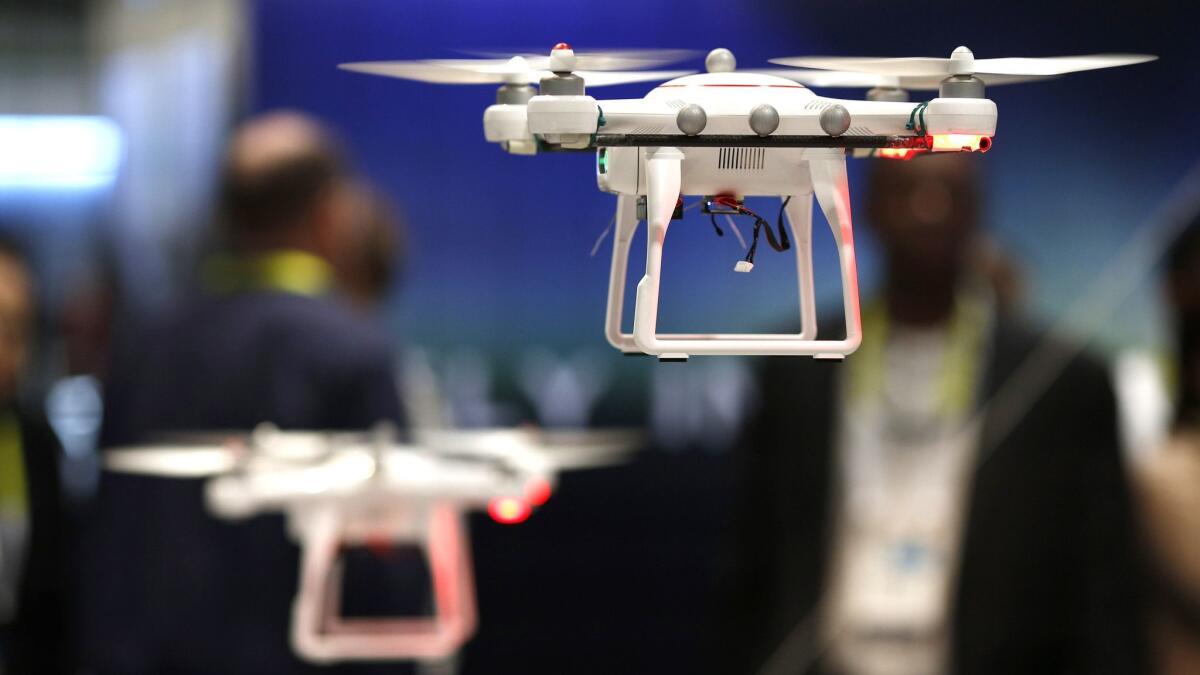FAA’s restrictions on drones withstand a hobbyist’s legal challenge

- Share via
The U.S. government’s ability to police hobbyist drone use was upheld by an appellate court Friday in a ruling that helps set the stage for a series of new restrictions and requirements that aviation regulators hope to enact soon.
The U.S. Court of Appeals for the D.C. Circuit on Friday rejected arguments by drone hobbyist John Taylor, who last year had successfully overturned the Federal Aviation Administration’s system for registering unmanned aircraft.
Although the three-judge panel said Congress intended to exempt some hobbyists from regulation — provided those hobbyists weren’t creating a safety hazard — they denied Taylor’s request to invalidate the rules.
“Because the rule is within the agency’s statutory authority and is neither arbitrary nor capricious, the petition for review is denied,” wrote Judge Merrick Garland, who authored the opinion for the panel.
Congress in 2012 passed a law that gave the FAA authority over the new class of remotely piloted aircraft known as drones while also saying certain model aircraft flown by hobbyists who already followed safety rules by a “nationwide community-based organization” were exempt.
That has led some to argue that the FAA can’t set regulations over drone flights by hobbyists. Taylor argued in this case that all hobbyists, not just those exempted by Congress, should be exempt from the law. Law year he successfully used the 2012 law to argue that the FAA’s drone registration system wasn’t legal, though Congress reinstated the registry months later.
Friday’s ruling is at least a partial win for companies such as Google parent Alphabet Inc.’s Project Wing and Amazon.com Inc.’s Prime Air, which have urged regulators and lawmakers to impose additional standards on the millions of people who fly hobbyist drones. Such requirements are needed to ensure that it’s safe to operate the autonomous delivery systems they are developing, the companies say.
The FAA plans to release proposed new regulations this year that will begin allowing drone flights over crowds and will require most or all of the devices to begin identifying themselves with radio beacons. The identification beacons are needed to satisfy U.S. security and law enforcement agencies, which fear the devices will be used by criminals or terrorists.
More to Read
Inside the business of entertainment
The Wide Shot brings you news, analysis and insights on everything from streaming wars to production — and what it all means for the future.
You may occasionally receive promotional content from the Los Angeles Times.










